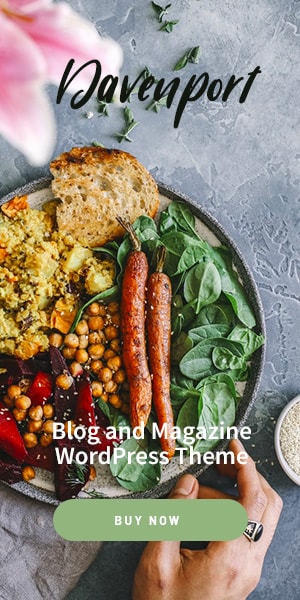10 High Protein Foods, Protein is crucial nutrient that plays vital role in your body growth repair and overall maintenance. Made up of building blocks called amino acids protein comes in many forms thanks to the 20 different amino acids that can combine in various ways. Explore the 10 Best High Protein Foods for your diet and also about Supplement.
Why Do We Need 10 High Protein Foods?
Protein is essential for several key reasons:
- Tissue Repair and Growth: It help to build and repair muscles bones skin and hair.
- Enzyme and Hormone Production: Proteins are required for making enzyme and hormone. which regulate many bodily functions.
- Transportation and Storage: They assist in transporting and storing different substances in body.
- Immune Support: Protein help bolster your immune system to fight infections.
- Energy Source: When carbs and fats are low protein can provide energy.

How Much Protein Do You Need?
Your protein need depend on factors like age gender and activity level. The recommended dietary allocation(RDA) for adults is 0.8 grams per kilogram of body weight. However this is the minimum to prevent deficiency. Many health experts suggest higher intake especially if you are active or aiming to build muscle.

Top Protein-Rich Foods
For high quality 10 High Protein Foods consider these sources:
1. Salmon
Salmon is highly nutritious fish is rich in high standard protein and healthy omega 3 fatty acid which are eager to help for heart health. Typical serving of salmon 3 particle provide about 22 grams of protein. It is also good source of vitamins B12 and D as well as selenium.
2. Greek Yogurt
Greek yogurt is thick creamy dairy outcome that is higher in protein compared to regular yogurt. Single serving (6 particle) of Greek yogurt can provide around 15 to 20 grams of protein. It is also rich in probiotics which support gut health and contains calcium and potassium.
3. Chicken
Chicken especially chicken breast is good fount of lean protein with very tiny fat. A 3 particle serving of cooked chicken chest has about 26 grams of protein. It also hold prime vitamin and mineral like niacin vitamin B3 vitamin B6 and phosphorus.
4. Lentils
Lentisl are legume that offer lofty protein and fiber content. One cup of cooked lentils provide around 18 grams of protein. They are rich in iron folate and other essential nutrient. Lentils are versatile and can used in soups stew salad and more.
5. Lean Pork
Lean cut of ham such as tenderloin are good fount of protein. A 3 particle serving of cooked pork tenderloin hold about 22 gram of protein. Pork is also rich in thiamine (vitamin B1) niacin (vitamin B3) and selenium.

6. Garbanzo Beans
Garbanzo beans also known as chickpeas are legume that give good quantity of protein and fiber. One cup of prepared chickpea give about 15 gram of protein. They are also high in iron folate phosphorus and magnesium. Chickpeas are often used in salads stews and base for hummus.
7. Eggs
Eggs are one of the most complete origin of protein available containing all the essential amino acids. One large egg give about 6 grams of protein. Eggs are also well of in vitamins and minerals such as vitamin B12 choline and selenium. They can be prepare in various ways and included in many dishes.
8. Tempeh
Tempeh is fermented soy product that is giant in protein and nutrient. A 3 particle serving of tempeh contain about 15 gram of protein. It also supply fiber vitamins and minerals such as calcium, iron and magnesium. Tempeh has firm touch and can be used in stir fries sandwiches and salads.
9. Quinoa
Quinoa is unique plant build protein source because it is complete protein containing all nine essential amino acids. One cup of cooked quinoa provides about 8 grams of protein. It is also high in fiber magnesium iron and other nutrients. Quinoa can be used as abase for salads bowls and side dishes.
10. Cottage Cheese
Cottage cheese is crisp cheese that is lofty in protein and low in fat. Half cup helping of cottage cheese contains about 14 grams of protein. It is also good fount of calcium phosphorus and B vitamins. Cottage cheese can be eat on its own mixed with fruit or added to various recipes

Protein on a Vegan or Vegetarian Diet
- You can still get plenty of protein without meat by mixing various plant-based sources:
- Legumes (beans lentils peas)
- Soy Products (tofu tempeh edamame)
- Nuts and Seeds
- Whole Grains (quinoa brown rice oats)
- Nutritional Yeast
Eating a diverse array of these foods ensures you get all the essential amino acids.
Potential Risks of Too Much Protein
While protein is beneficial excessive intake can pose risks:
- Kidney Strain: High protein can stress the kidneys particularly if you have existing kidney issues.
- Weight Gain: Consuming more calories than you burn even from protein can lead to weight gain.
- Digestive Problems: Overeating protein may cause bloating gas and diarrhea
Consult a healthcare professional before making significant changes to your protein consumption.
The Role of Protein Supplements
Protein supplements can be handy way to boost intake especially for athletes or those focused on muscle growth. However, they should not replace whole foods in your diet. Opt for high-quality supplements and follow recommended dosages.

When to Seek Medical Advice
If you are unsure about your protein need or experience gloomy effects from high protein intake consult healthcare executive. They can guide you the right amount for your specific needs and advise you safe ways to increase your intake.
Q: What are the best high protein foods?
The best high protein foods include salmon, Greek yogurt, chicken, lentils, lean pork, garbanzo beans (chickpeas), eggs, tempeh, quinoa, and cottage cheese.
Q: Why is salmon a good source of protein?
Salmon is a great source of protein because it contains 22 grams of protein per 3-ounce serving and is also rich in omega-3 fatty acids, which are beneficial for heart health.
Q: Is chicken a good protein option for low-fat diets?
Yes, especially chicken breast, which is a lean source of protein with very little fat, providing about 26 grams of protein per 3-ounce serving.
Q: Why is quinoa considered a unique plant-based protein?
Quinoa is unique because it is a complete protein containing all nine essential amino acids. One cup of cooked quinoa provides about 8 grams of protein and is high in fiber, magnesium, and iron.






1 Comment